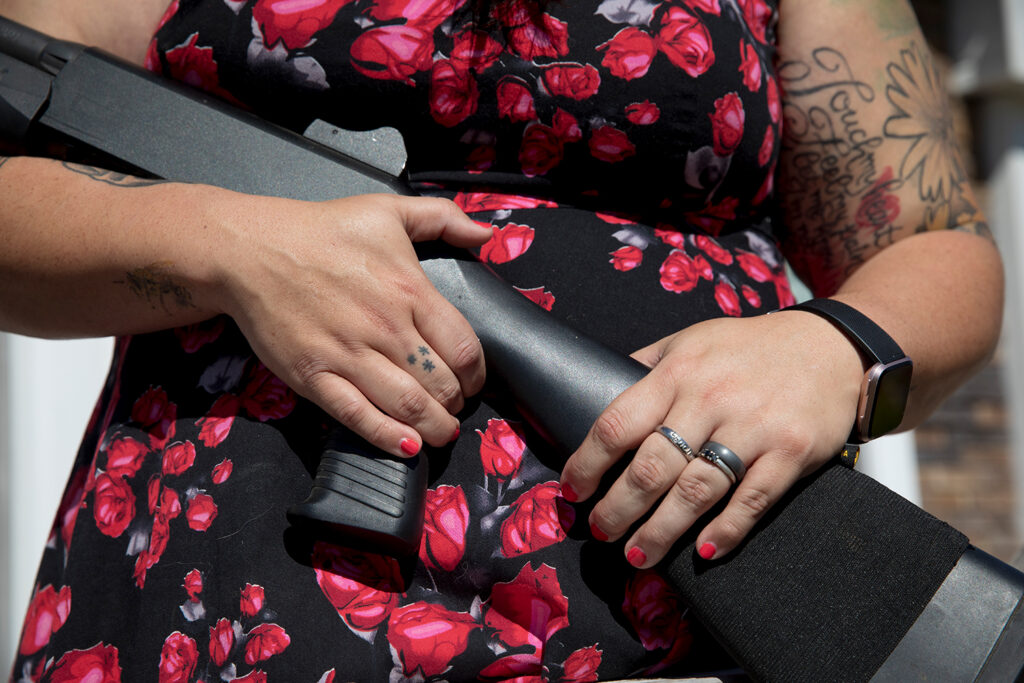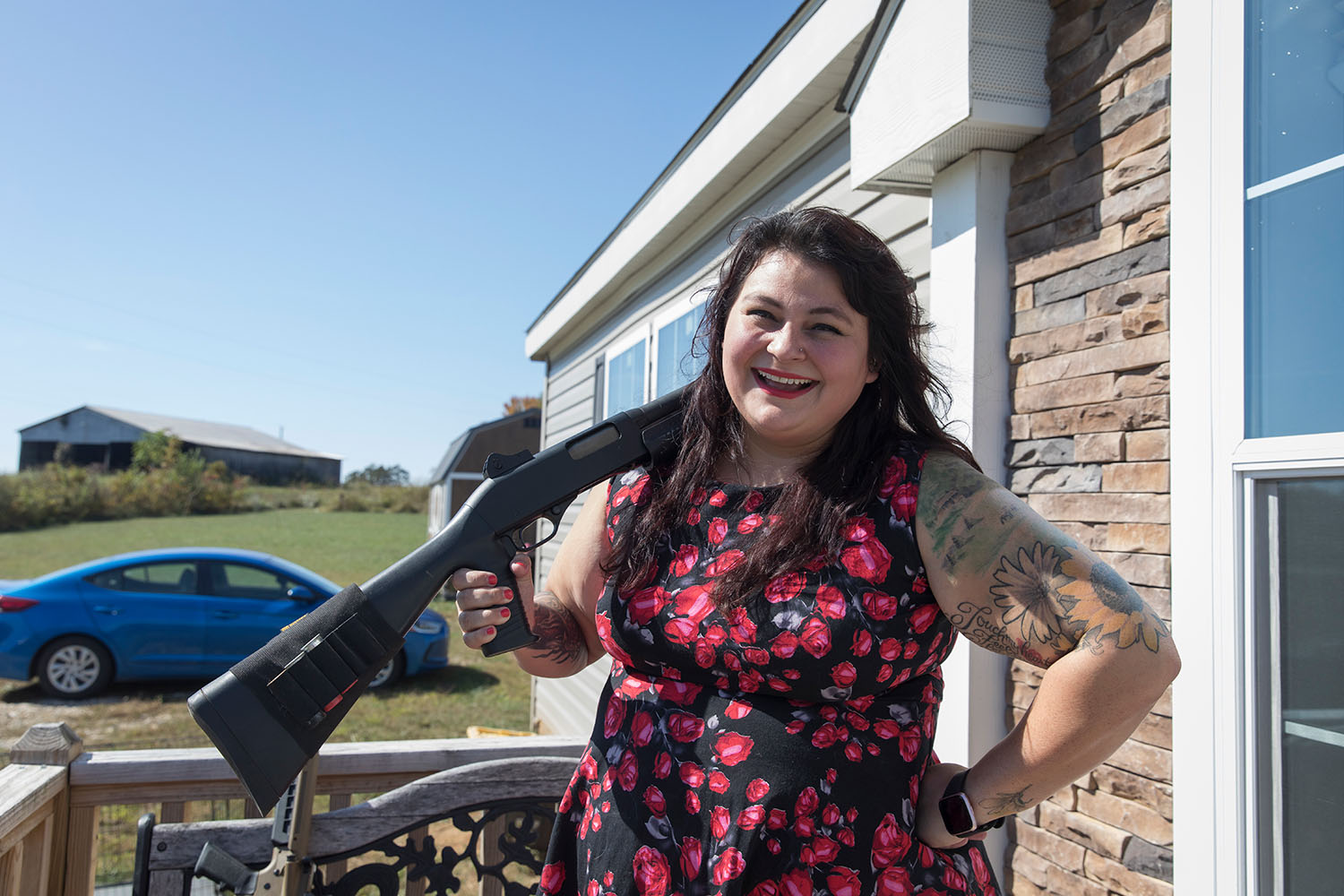Cassetty said her pistol-grip shotgun is her favorite in her vast collection, which includes various rifles and BB guns.
“I like shotguns next to the front door because you can go like this,” she said as she cocked the gun. “It’ll scare someone who isn’t supposed to be there away.”
Unlike Reis, Cassetty’s rural location leaves her feeling more determined to care for her property and the animals that occupy it, including dogs, pigs and chickens.
“These are good for varmints,” Cassetty said while cradling her .22-caliber rifle. Cassetty has awoken to dead animals on her property since moving to the countryside, the perpetrator being a raccoon.
“I’d wake up every morning, making deals with God, please don’t leave any bloody carcasses to clean up this morning,” Cassetty said.
Despite a yearning to protect her animals, shooting the raccoons remained a prospect she found disturbing. In the beginning, her husband, Jodi, was responsible for shooting the intruders. Eventually, Cassetty started feeling guilty for putting all of the responsibility to kill animals on her husband.
“Eventually, my husband said, ‘You have to share this burden in killing them because I don’t like killing them either,’” Cassetty said. “There’s a great responsibility behind it that’s super uncomfortable.”
Reis, an avid camper, said that firearms would offer him a sense of security against animal predators as well. He recalled encountering black bears during trips to Red River Gorge, experiences that play into his decision to purchase a handgun. “I want something that’s gonna stop a bear, or at least scare it,” Reis said.
Guns represent more to Cassetty than a symbol of her right to bear arms, and they still go far beyond a safety measure. She said many of her collections are pieces of history to her.
“They are my heritage,” Cassetty said. “A lot of these guns are family heirlooms.”
Despite Cassetty’s support for guns, she said she believes stricter protocols for obtaining guns should be enacted.
Cassetty said she purchased two guns within 48 hours as Christmas presents in 2018, one for her father and one for her husband. She feels the process to obtain firearms and ammunition was too easy and she would like to see a stricter national protocol.
Reis is also a proponent of stronger gun safety training regulations. Smith said she believes that banning assault rifles doesn’t work and would like to see more work done for mental health care instead.
“Do cigarettes kill people, or does smoking kill people?” Cassetty said. “It’s an instrument to use, but so is my tomahawk. But guns are more instantaneous, and there’s a lot more regret that comes with that, I think.”




